Understanding history History Worksheets for Ages 7-9
7 filtered results
-
From - To
Explore our "Understanding History" worksheets designed for kids aged 7-9! Engage young learners with activities that foster a love for history in a fun and interactive way. Our worksheets cover intriguing topics, encouraging critical thinking and comprehension skills. From identifying significant historical events to understanding timelines and cause-and-effect relationships, these resources are perfect for classroom or at-home learning. Each worksheet is crafted to meet educational standards and inspire curiosity in budding historians. Help your child develop a strong foundation in history while making learning enjoyable. Visit us today to access a variety of worksheets that spark interest and ignite imagination!
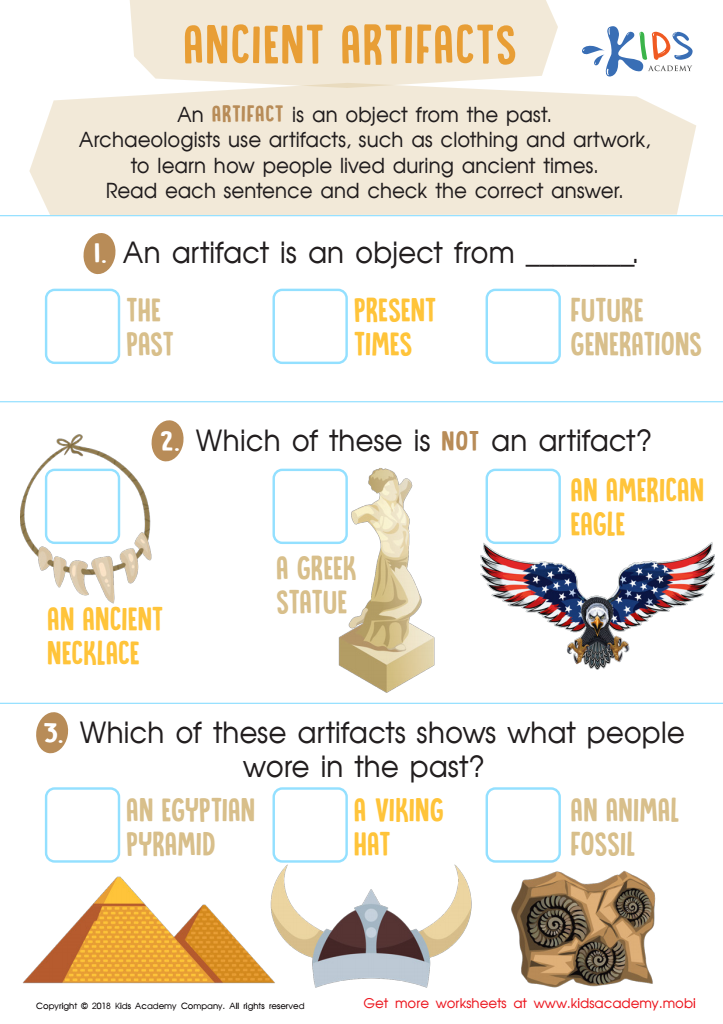

Ancient Artifacts Worksheet
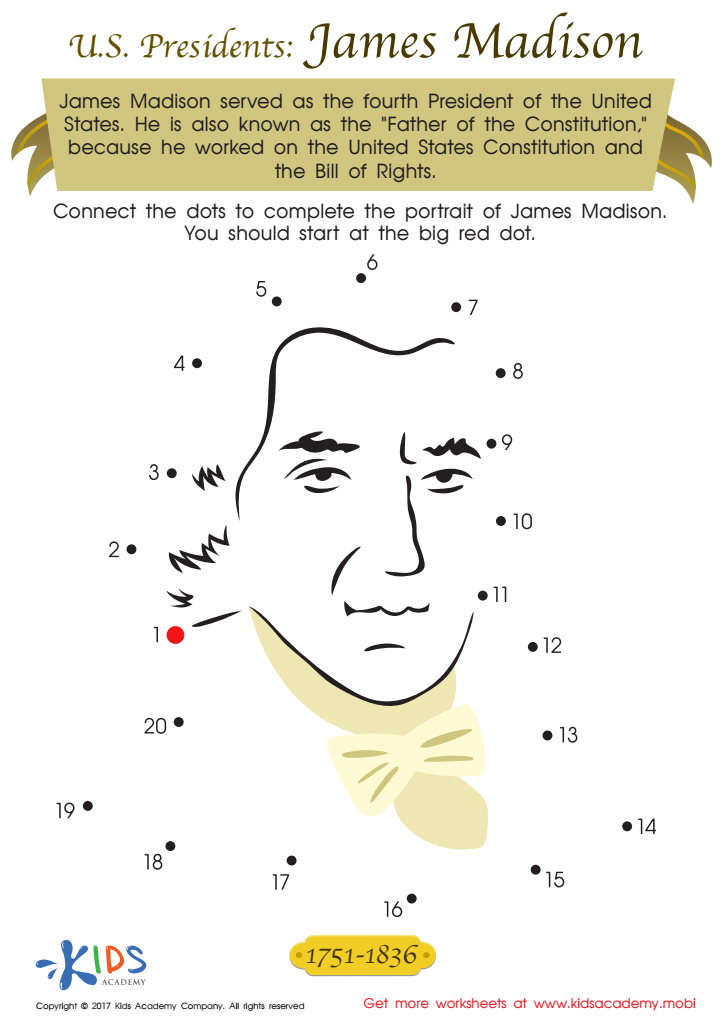

President Madison Printable
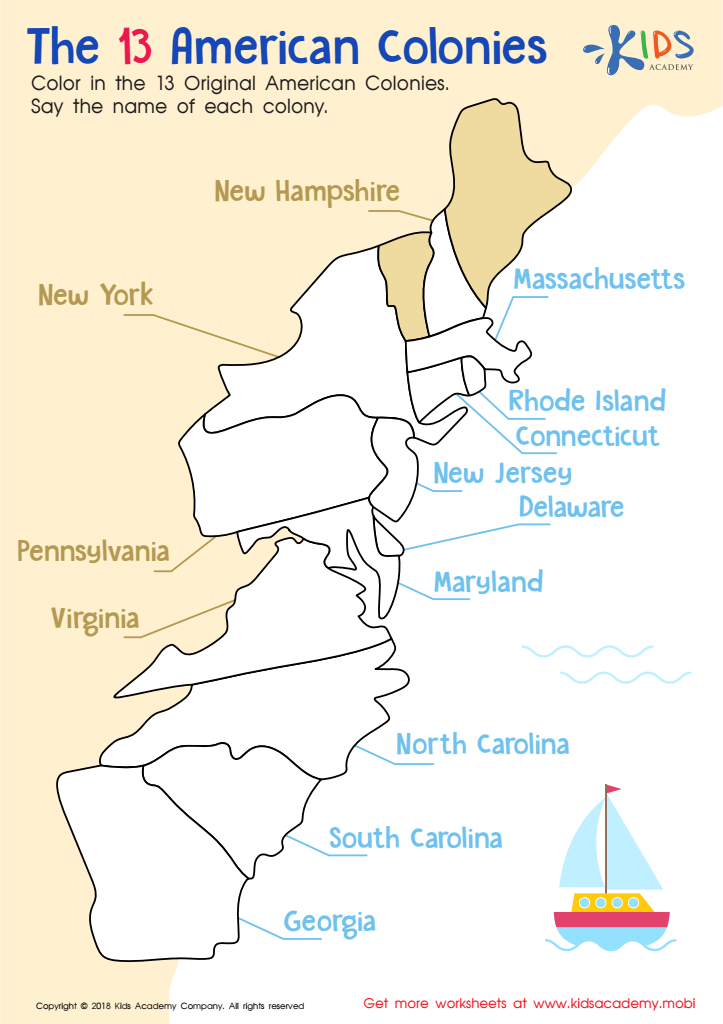

The 13 American Colonies Worksheet
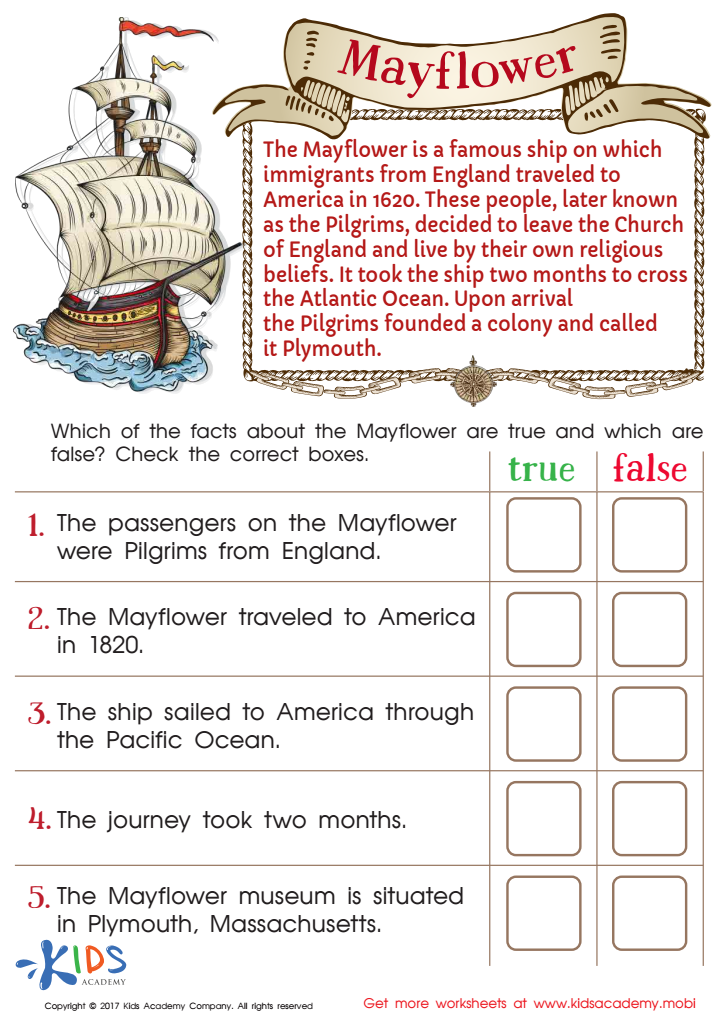

Free Mayflower Worksheet
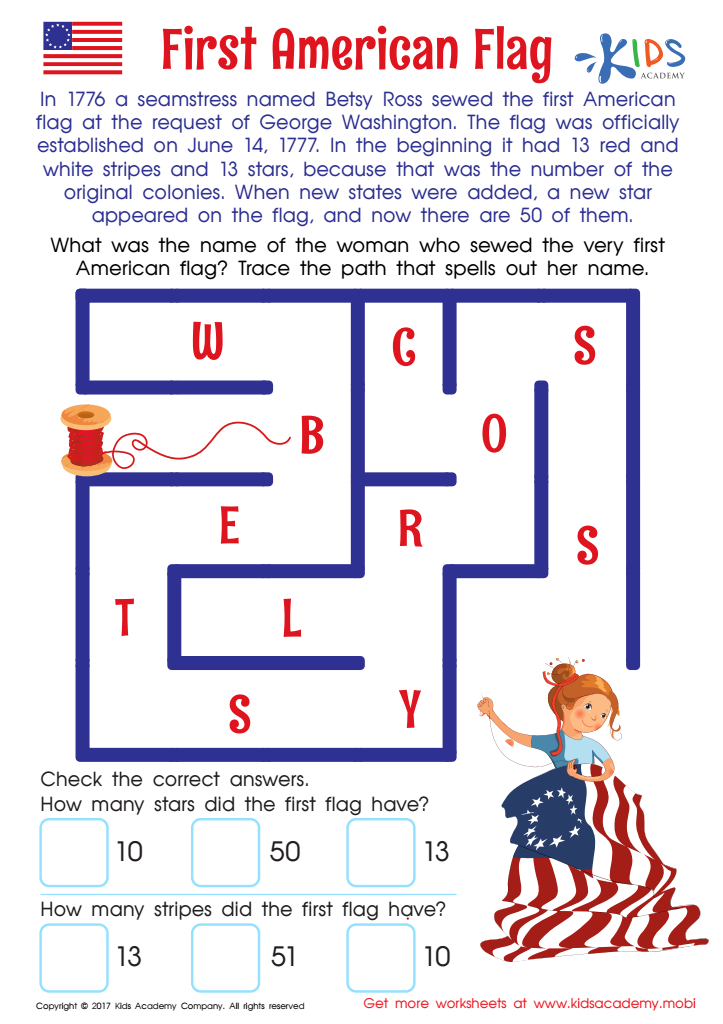

First American Flag Worksheet
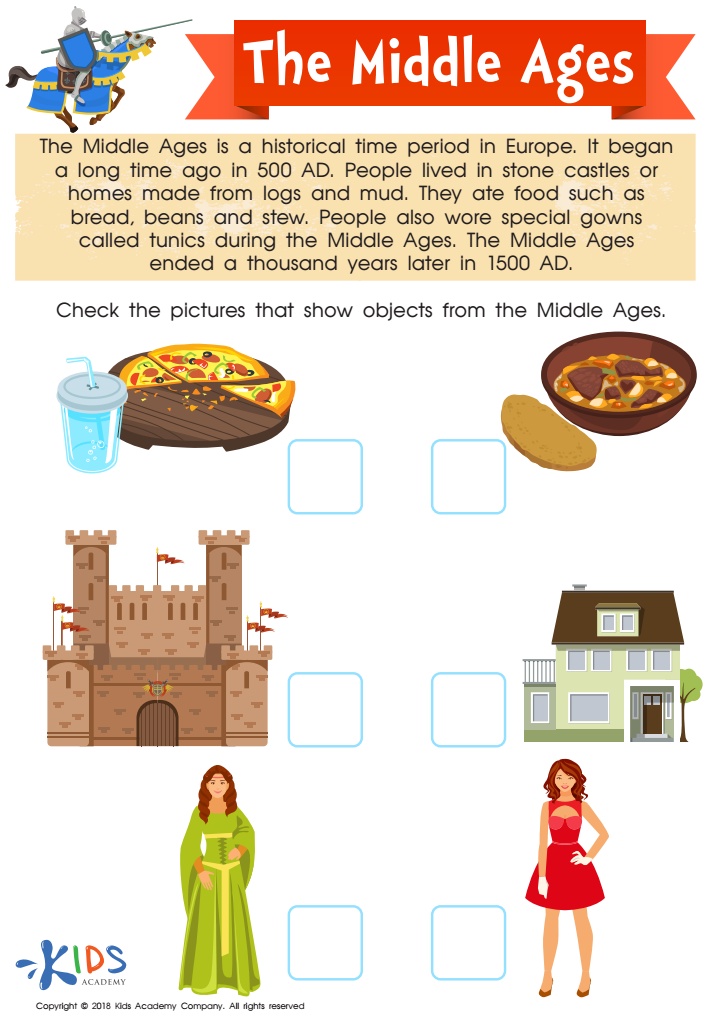

The Middle Ages Worksheet
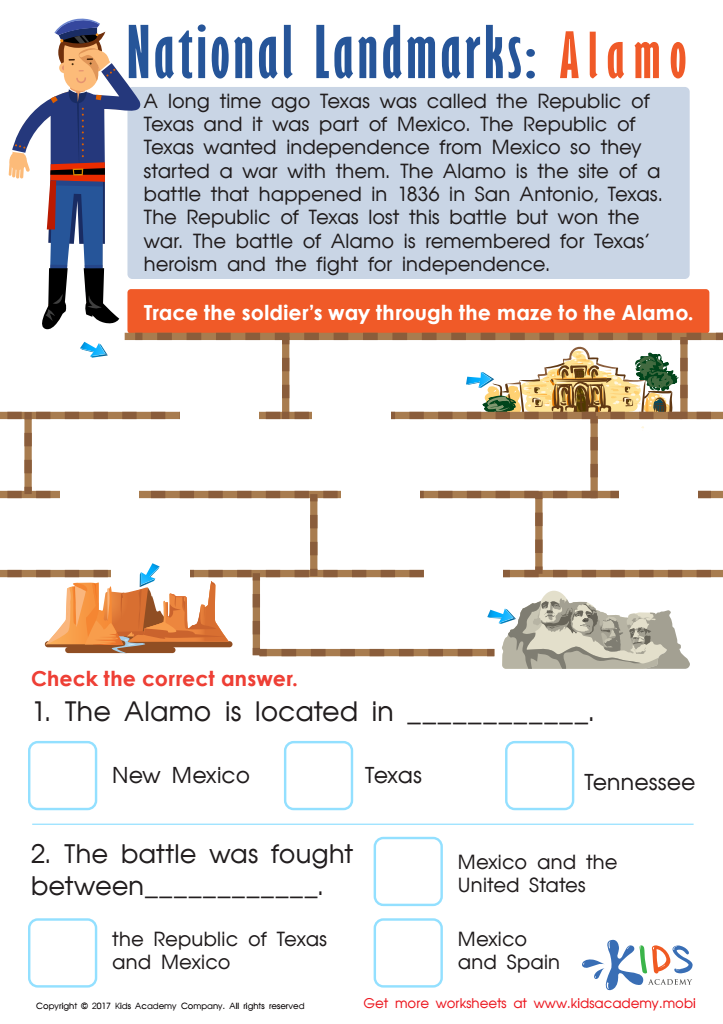

Alamo Printable Worksheet
Understanding history is essential for children aged 7-9 as it shapes their identity, instills values, and fosters critical thinking. During this developmental stage, kids begin to grasp concepts of time and connectivity. Learning history allows them to explore how past events influence their lives today, promoting a sense of belonging within their community and society.
Parents and teachers should prioritize history education because it cultivates empathy and respect for diversity. By studying different cultures, historical figures, and pivotal moments, children learn to appreciate various perspectives, helping to nurture compassion and tolerance. This foundation can combat prejudices and stereotypes from an early age.
Furthermore, history teaches children to become informed citizens. Understanding local, national, and global events equips them with knowledge to engage in discussions about current issues and participate actively in their communities. Encouraging children to ask questions about the past also fosters curiosity and enhances their critical thinking skills, laying the groundwork for informed decision-making in the future.
In summary, caring about history in early education supports emotional, cognitive, and social development, ensuring children grow into thoughtful, empathetic individuals who understand their roles in the broader narrative of humanity.
 Assign to My Students
Assign to My Students








.jpg)









